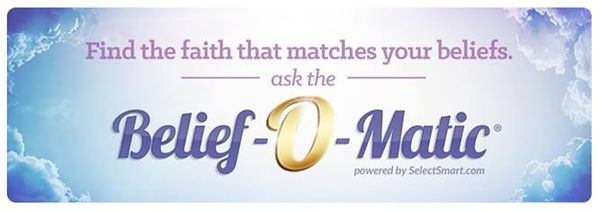What is Unitarian Universalism?

Welcome to Unitarianism or Unitarian Universalism (UU), a liberal religion that celebrates diversity of belief and is guided by eight principles. Our congregation and the almost 50 others across Canada and the many around the world are places where we gather to nurture our spirits, stimulate our freedom of thought and mind, and put our faith into action through social justice work in our communities and the wider world.
Newcomers are always welcome. There is no formal conversion process, so becoming a Unitarian is simply a matter of self-identification. Following an orientation to Unitarian Universalism and to our Fellowship, newcomers may sign our membership book. Membership does not require renouncing other religious affiliations or practices.
We come from a rich tradition of religious freedom and history; our roots go back to the 1500’s in Europe when Christians who believed that there was no biblical or other reason to believe in the Holy Trinity were persecuted as “heretics.” The real meaning of the word “heretic” is to choose and Unitarians believed that people should be free from religious dogma and creed to choose their spiritual path. We still do!
Instead of dogma we are guided by 8 Principles, formed from the wisdom of the world’s major religions and the guidance of science and philosophy.
Our history has carried us from liberal Christian views about the nature of God and human nature to a rich pluralism that includes theist and atheist, agnostic and humanist, pagan, Christian, Jew, and Buddhist. As our history continues to evolve and unfold, we invite you to join us by choosing our free faith. Come and celebrate our diversity of mind and spirit!
To learn more download and read What We Wish People Knew About Unitarian Universalism, by the Rev. Steven Epperson.
The Eight Principles
Unitarian Universalist congregations affirm and promote eight Principles. These principles represent our values and act as a moral guide.
 |  |  |  |
|---|---|---|---|
 |  |  |  |
For more information about out eight Principles, go to: https://cuc.ca/unitarian-universalism/principles_sources/
Why Become A Unitarian Universalist?
The Chalice Story

"The Flaming Chalice"
At the opening of our worship services, many congregations light a flame inside a chalice. This flaming chalice has become a well-known symbol of our denomination. It unites our members in worship and symbolizes the spirit of our work.
Originally, the flaming chalice was a two-dimensional image stamped on documents created by the Unitarian Service Committee (USC) to help Jewish refugees escape Nazi persecution on the eve of World War II.
The design had been hastily put together by the artist Hans Deutsch, himself a refugee. Deutsch was working at the direction of the USC’s director, Rev. Charles Joy, who believed that such a logo would make their paperwork look more official.
After 1941, the flaming chalice symbol spread throughout the world and has transformed into the basic symbol we have today and yet remains fluid by the individual expressions of artists.
Canadian Unitarian Council
The Canadian Unitarian Council (CUC) is the administrative body for all Unitarian and Unitarian Universalist congregations in Canada. Although there are only 5,000 Unitarians in Canada, there are churches and Fellowships from coast to coast! The largest congregations are found in Vancouver, Ottawa and Toronto.
While each congregation is “autonomous” in running its own affairs, they pay annual dues to the CUC to provide a common voice in national and social affairs, create opportunities to meet with other Unitarians through workshops and conferences, and to offer leadership training and other educational opportunities. Our Fellowship is an active dues-paying member of the CUC.
For more information, to read and/or subscribe to their newsletter or to visit their website, click the images below.
Click image to see Newsletters
Click image to see the CUC website
Click image to subscribe to the Newsletter
Unitarian Universalist Association
The Unitarian Universalist Association (UUA) is the administrative body for all Unitarian and Unitarian Universalist (UU) congregations in the United States. There are over 230,000 UU’s across the U.S.
Although each congregation is “autonomous” in running its own affairs, they pay annual dues to the UUA to provide
a unified voice in national and social affairs, create opportunities to meet with other Unitarians through workshops and conferences and to offer leadership training and other educational opportunities. As a bi-national Fellowship, we maintain an association with the UUA.
For more information and to visit their website, click the image below.
Famous Unitarians
There are many famous Unitarians (UU’s) throughout history. Here's a small sampling! - Click on their pictures to learn more about them.
To learn about more great Famous Unitarians, check out these great resources! Click on the logo or watch the video













